PM steels for food fight after critical offer fails to win over Trump
The Albanese government will promise the nation’s farmers and food producers it will fight to protect them from Donald Trump’s next round of tariffs, as it offers the White House billions worth of co-operation on critical minerals.
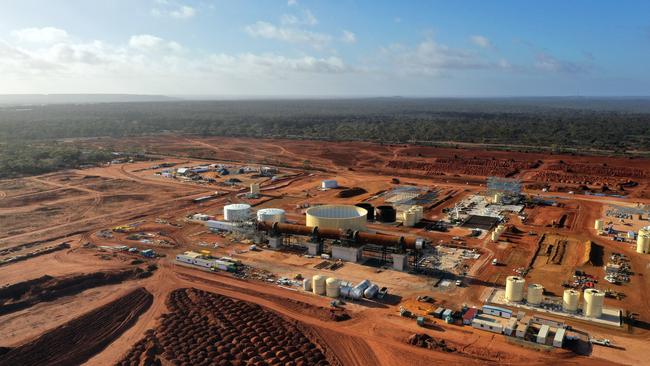
The Albanese government will promise the nation’s farmers and food producers it will fight to protect them from Donald Trump’s next round of tariffs, as it offers the White House billions worth of co-operation on critical minerals to shield Australia from the escalating trade war.
Trade Minister Don Farrell will pledge to protect Australia’s $75bn food export industry, including beef, wine and agriculture supplies to the US, amid fears an April 2 reciprocal tariffs announcement could deepen the trade spat, with meat and pharmaceuticals also in the firing line.
“We’ve got your back. We will stand with you, shoulder to shoulder, to protect our trade interests – just like we did to resolve the trade issues with China,” Senator Farrell will tell The Australian and Visy Group’s 13th annual Global Food Forum in Melbourne on Friday.
“The Albanese government has a strong track record on trade, and has shown that calm, persistent and quiet diplomacy pays off. We will be unrelenting in making our case to the US, and working tirelessly for Australia.”
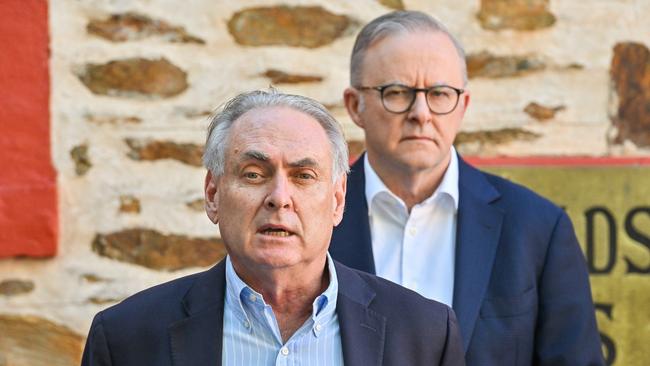
The Australian can reveal Kevin Rudd laid out the government’s critical minerals plan to Commerce Secretary Howard Lutnick in multiple meetings ahead of Mr Trump’s tariff decision on Wednesday, and was encouraged by the response. It proposed a guaranteed supply chain of processed minerals and investment funds for new projects. “We were led to believe by Lutnick that this is what they wanted,” a senior government source said.
The proposal coincided with the President’s pressure campaign to get Ukraine to sign over its critical minerals resources, but it failed to save Australian steel and aluminium producers from his new 25 per cent tariffs.
“Australia was offering a comprehensive critical minerals package in exchange for tariff-free access to US markets. We were extremely disappointed that our generous offer was not accepted,” Senator Farrell said.
The package remains on the table and will be central to the nation’s case ahead of Mr Trump’s April 2 reciprocal tariffs announcement, which could hit an array of Australian products including medicines, beef, seafood and other food exports.
Senator Farrell will tell the Forum the Albanese government has not given up securing an exemption on steel and aluminium imposts, but “we can expect it will take some time”.
“Our government had worked tirelessly to secure an exemption. But it didn’t matter which country, which leader, or which minister was making their case. No one secured an exception – not a single country,” Senator Farrell will say. “The US will continue to buy our steel and aluminium, even if it means higher prices for their consumers and businesses.”
A day after Anthony Albanese blasted Mr Trump’s tariffs as “unjustified” and unfriendly, the government rejected claims by Mr Lutnick that Australia was a “dumper” of cut-price aluminium.
“You’ve got dumpers in the rest of the world. Japan dumps steel, China dumps steel … we’re going to stop that nonsense and bring steel here,” Mr Lutnick told Fox Business.
“We’re not going to stand for China dumping, Japan dumping … Australia does a lot of aluminium at below cost. I mean, this has got to end, and the President is on it, and he’s protecting America.”
Australian aluminium producers have been shielded from rising energy prices and been promised $2bn by Labor to switch to renewable electricity. But a government spokeswoman said Australia “does not provide subsidies directly to the aluminium sector”, and there had been no complaints about dumped aluminium aired by US industry.
The government’s push to do a deal with the US on critical minerals follows years of bilateral engagement on the issue aimed at developing supply chains for military, energy and hi-tech industries outside China’s control.
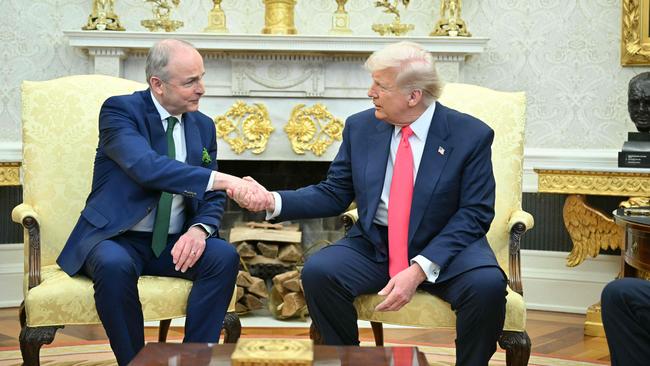
Mr Trump this week revealed plans to build critical minerals processing facilities on Defence Department land after telling congress last week he would “take historic action to dramatically expand production of critical minerals and rare earths here in the USA”. The US designates 50 minerals as critical to the US economy and national security, 30 of which Australia has significant quantities.
Scott Morrison’s former chief of staff, John Kunkel, now senior economics adviser at the United States Studies Centre, said Australia didn’t have many negotiating cards to play, so it made sense to try to lever off the nation’s critical minerals resources. “I would say Kevin Rudd has probably been thinking about lots of new and specific things in this context,” Mr Kunkel said.
“Under Biden, there was quite a developed process right up until the end where they were basically trying to put together a Western club on critical minerals as part of a strategy to reduce Chinese dominance in the marketplace.
“We want to be as co-operative as possible, and that’s the context of why the critical minerals thing has become notable.”
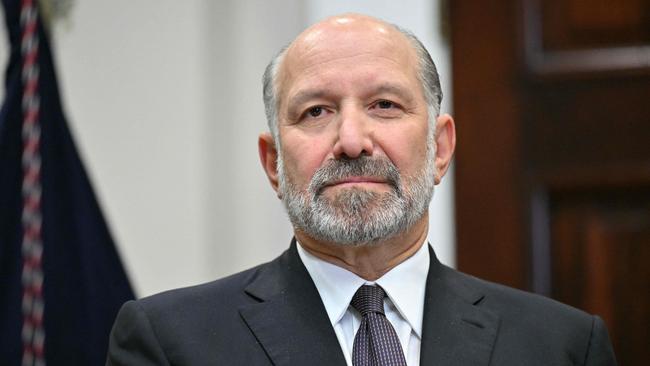
Arafura Rare Earths managing director Darryl Cuzzubbo said Australia’s critical minerals resources put the nation in a strong bargaining position to secure a quid pro quo on tariffs.
“Outside of China, which controls nearly 90 per cent of supply, the only country that has an independent source of rare earths is Japan through Lynas (Australian company Lynas Rare Earths). So if you are the US, Europe or Korea, you are currently very exposed,” he said.
“Australian rare earths have to be of significance in this environment because the vast majority of rare earth projects in other countries are either years away from entering construction or depend upon processing in China.”
The Albanese government ruled out retaliatory tariffs against the US but Canada and the EU hit back on Thursday. Announcing new tariffs on $33bn worth of US goods, Canadian Finance Minister Dominic LeBlanc said his country would “not stand idly by while our iconic steel and aluminium industries are being unfairly targeted”.
The EU slapped tariffs on about $45bn worth of US imports including textiles, bourbon, jeans, peanut butter and Harley-Davidson motorcycles.
Westpac chief executive Anthony Miller said Australian exporters should focus on Asia-Pacific markets rather than being preoccupied with the US.
Mr Miller told the International Institute of Finance in Sydney that Australia needed to show the region it was a “consistent, reliable, and transparent” trading partner. He said agriculture and education were two key sectors where Australia could better engage with Asia.
Additional reporting: Brad Thompson


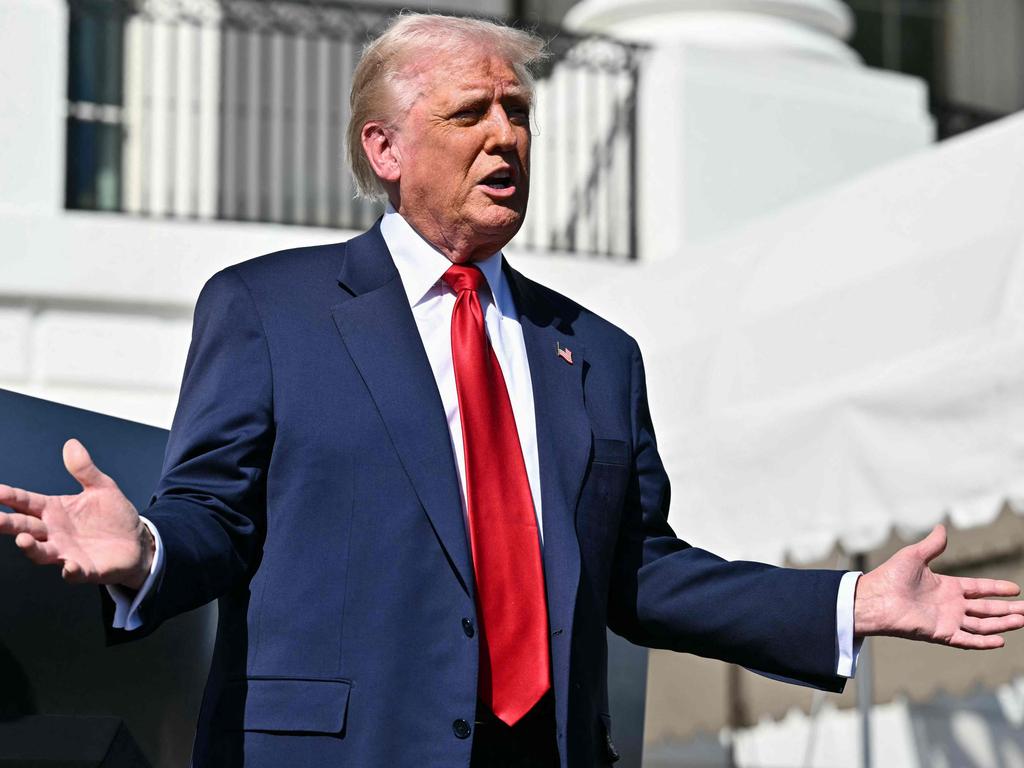


To join the conversation, please log in. Don't have an account? Register
Join the conversation, you are commenting as Logout